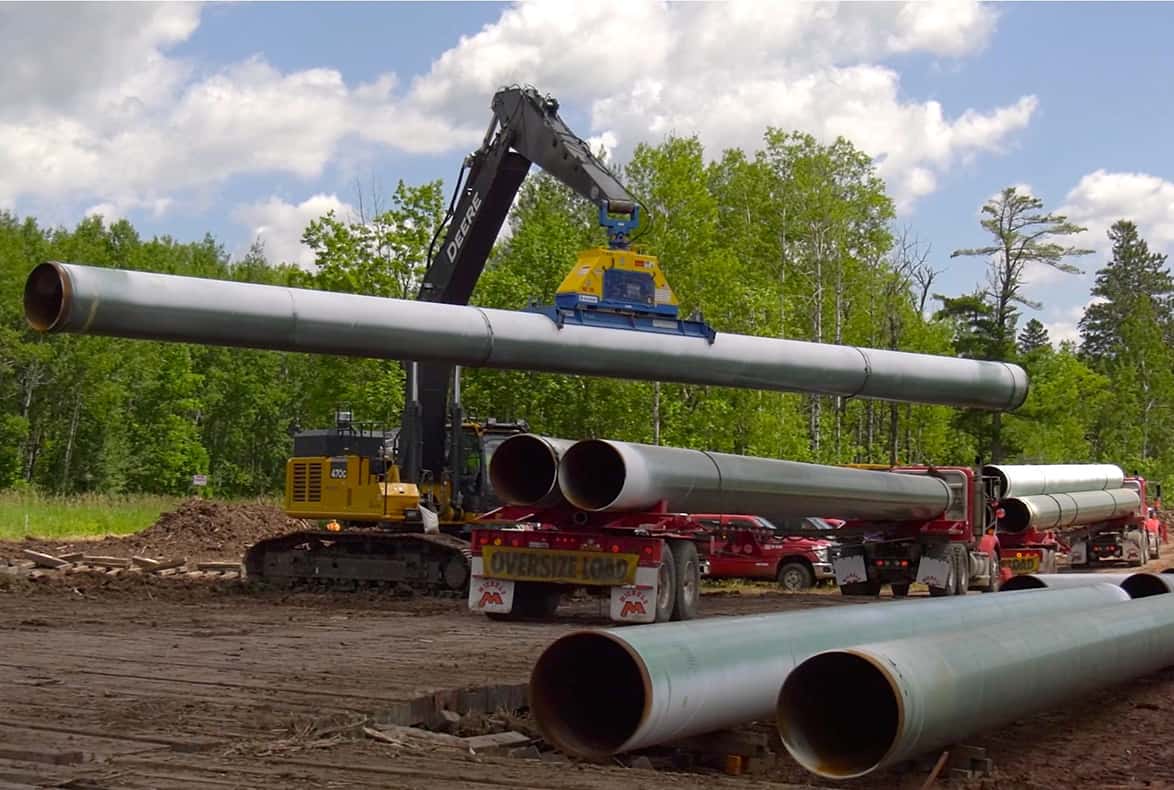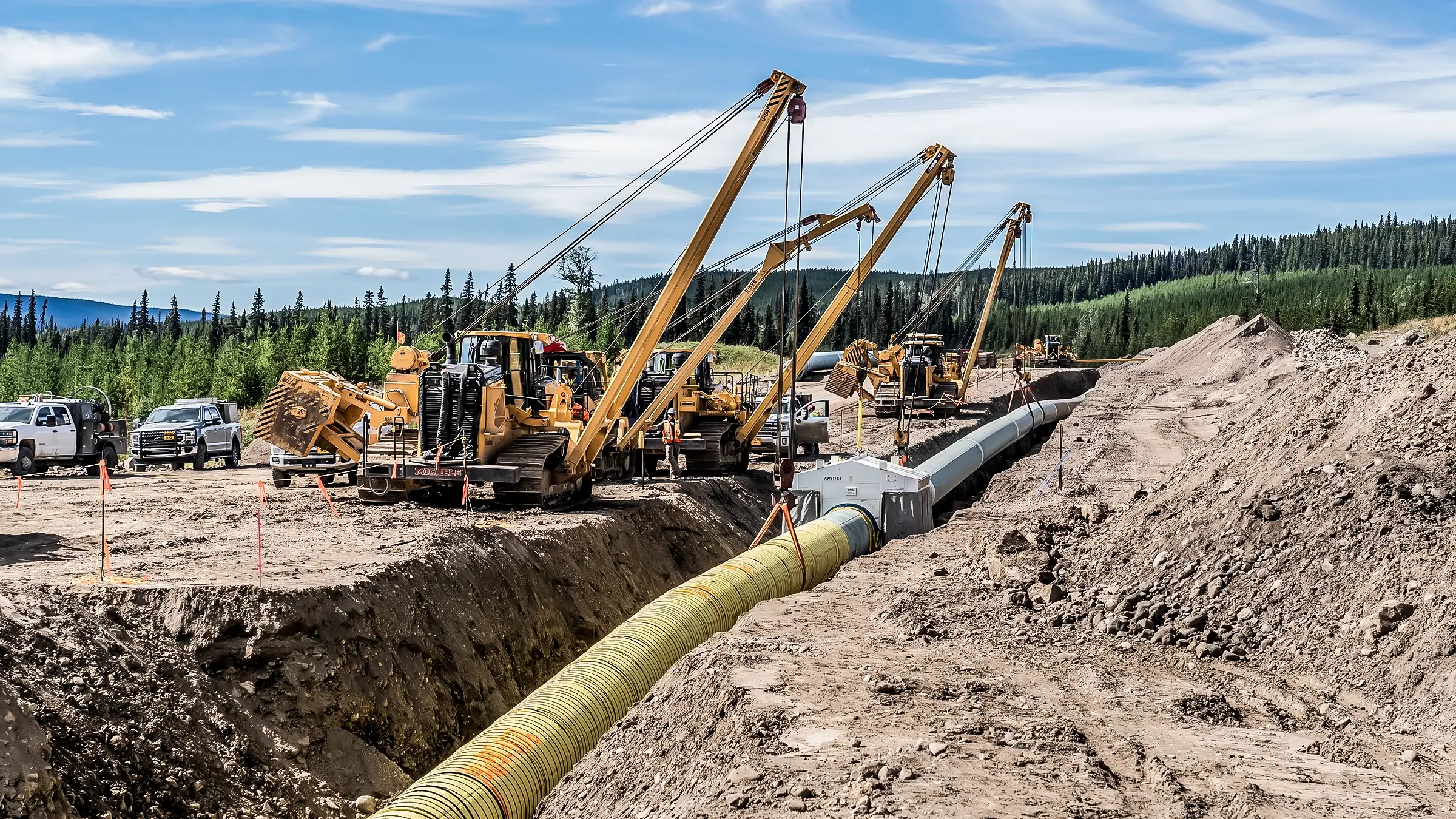Recognizing the Secret Features of Pipeline Services and Their Influence On Efficiency
Pipeline solutions play an important function in various markets, affecting functional effectiveness substantially. Trick functions, such as sophisticated tracking technologies and maintenance methods, are important for minimizing downtime. In addition, regulatory compliance assurances security and environmental management. However, the interplay between layout, framework, and economic factors can make complex these processes. Understanding just how these components impact overall effectiveness elevates important concerns about finest techniques and future advancements in the area.
The Function of Modern Technology in Pipeline Monitoring
As improvements in modern technology remain to evolve, the value of efficient pipeline tracking has come to be increasingly noticeable. Modern pipeline systems count on sophisticated tracking devices that improve functional performance and safety. Technologies such as real-time data analytics, sensors, and drones supply drivers with instant insights right into pipe problems, allowing them to identify leakages, corrosion, and other potential problems before they intensify into significant troubles.
Moreover, the assimilation of Internet of Things (IoT) tools has transformed typical surveillance methods, enabling constant security and automated coverage. This proactive technique not just decreases threats but additionally enhances maintenance routines and resource allotment. Furthermore, advanced software program platforms promote information visualization and interpretation, empowering decision-makers to respond swiftly to abnormalities. Jointly, these technological advancements not just enhance pipeline stability yet also foster ecological stewardship by minimizing the possible influence of leaks and spills.
Upkeep Methods for Enhanced Effectiveness
Effective maintenance techniques are crucial for enhancing pipe effectiveness. Carrying out anticipating upkeep techniques, sticking to routine evaluation protocols, and establishing durable emergency feedback plans can significantly enhance operational reliability. These methods not just decrease downtime but additionally add to the total safety and honesty of pipe systems.
Anticipating Maintenance Methods
Predictive upkeep techniques are significantly identified for their ability to improve functional performance in pipe services. By leveraging data analytics and keeping track of innovations, these techniques make it possible for drivers to anticipate tools failings prior to they occur. This positive technique reduces unintended downtime, minimizes maintenance expenses, and expands the life expectancy of crucial properties. Sensors and IoT tools play a critical role in accumulating real-time data, permitting the assessment of equipment wellness and efficiency trends. Machine understanding algorithms evaluate this information to determine patterns and predict prospective problems. As a result, pipeline drivers can set up upkeep activities throughout non-peak times, maximizing source allotment and making certain constant operation. Ultimately, the adoption of anticipating upkeep promotes a more trustworthy and effective pipe framework.

Regular Examination Protocols
Routine assessment methods serve as a foundation of upkeep strategies aimed at improving efficiency in pipeline operations - Midland pipeline construction company. These methods include methodical evaluations of pipeline honesty, focusing on finding possible problems prior to they rise. Normal inspections generally include visual assessments, leak detection modern technologies, and stress tracking to assure peak performance. By adhering to recognized timetables, drivers can determine rust, material wear, or obstruction, therefore minimizing downtime and fixing expenses. In addition, data collected during inspections can educate anticipating maintenance efforts, allowing for an aggressive technique to pipe monitoring. Inevitably, routine examinations not only extend the life-span of pipe infrastructure however likewise add to much safer and much more trusted transportation of sources, reinforcing general functional effectiveness
Emergency Reaction Preparation
Emergency situation action preparation is necessary for keeping efficiency in pipe operations, making sure that operators are prepared to resolve unexpected cases quickly and efficiently. A well-structured emergency situation response strategy consists of clear methods, assigned duties, and interaction methods to minimize risks related to pipeline failings. Regular drills and training improve group preparedness and familiarize workers with emergency situation procedures. In addition, having readily available sources, such as spill containment tools and emergency situation call listings, can substantially minimize response times. By integrating real-time monitoring modern technologies, operators can promptly identify and react to problems, minimizing environmental impact and operational downtime. Inevitably, an extensive emergency situation feedback strategy not only safeguards possessions and workers however also enhances the total performance of pipe services.
Regulative Conformity and Security Specifications
Regulative conformity and safety and security criteria play an important function in the pipe services industry. Midland pipeline construction company. Complying with sector guidelines ensures that firms implement effective safety and security protocols and risk management strategies. This dedication not only protects employees and the setting but likewise improves overall functional effectiveness
Conformity With Sector Regulations
Conformity with market laws is essential for ensuring the security and efficiency of pipe operations. Governing frameworks, such as those established by the Epa (EPA) and the Pipeline and Hazardous Products Safety Administration (PHMSA), set rigorous standards that drivers have to stick to. These policies cover numerous elements, consisting of pipeline design, building, maintenance, and surveillance, ensuring that systems run safely and successfully. Non-compliance can lead to extreme fines, operational delays, and ecological threats. By adhering to these policies, pipe firms not only shield public safety and the environment but additionally improve their operational effectiveness. Inevitably, regulatory compliance fosters depend on amongst stakeholders, ensuring that pipe solutions can operate effortlessly in a competitive landscape while meeting lawful responsibilities.

Safety Procedure Implementation
Efficient Pipeline services Midland Texas safety and security protocol implementation is a crucial element of pipe operations, very closely linked to regulative conformity and safety and security requirements. Sticking to these methods not only guarantees the defense of employees but also safeguards the setting and facilities. A robust security structure includes normal training, comprehensive assessments, and making use of proper safety equipment. Organizations must continue to be vigilant in upgrading their methods to reflect adjustments in policies and technical improvements. Conformity with recognized safety standards decreases the risk of mishaps and improves functional efficiency. In addition, a culture of safety and security fosters employee engagement and accountability, adding to general organizational success. Eventually, effective safety procedure application is extremely important in preserving the integrity of pipe services and achieving lasting sustainability in procedures.
Danger Monitoring Methods
Executing robust threat management strategies is vital for guaranteeing that pipeline procedures stick to regulative demands and safety standards. Organizations has to recognize potential risks and analyze dangers associated with pipe activities. This includes carrying out complete evaluations, making use of advanced surveillance modern technologies, and preserving conformity with market guidelines. Regular training for personnel on safety and security methods enhances situational recognition and prepares teams to react effectively to emergency situations. Additionally, developing backup strategies and performing drills can significantly minimize dangers. Collaborating with regulatory bodies makes sure alignment with developing security requirements. By focusing on threat management, pipe services can boost functional efficiency while safeguarding both the atmosphere and public security. Ultimately, a proactive technique to take the chance of administration fosters a culture of security within the market.
Pipeline Layout and Infrastructure Considerations
How can the style and facilities of pipelines affect general functional performance? The setup of pipes plays a vital function in identifying their effectiveness. Efficient design minimizes rubbing losses, hence reducing power intake throughout fluid transport. Aspects such as size, material option, and format straight effect flow prices and upkeep requirements.
Furthermore, tactical positioning of valves and keeping track of systems enhances functional control and security. Creek Pipe Midland TX. Infrastructure factors to consider, including accessibility for repair and maintenance, substantially influence downtime and general efficiency
Integrating innovative innovation for real-time monitoring assists in punctual detection of leakages or ineffectiveness, guaranteeing speedy reactions to issues. The general structural stability, affected by material sturdiness and ecological elements, additionally forms lasting operational success. As a result, thoughtful layout and robust facilities are important for taking full advantage of pipe effectiveness, ultimately adding to the dependability and productivity of pipeline services.
Environmental Impact and Sustainability Practices
While the need for pipe solutions proceeds to grow, comprehending the ecological effect and taking on sustainability methods has ended up being progressively important. The building and procedure of pipelines can notably influence environments, wild animals habitats, and water resources. To reduce these influences, business are carrying out sophisticated technologies and methods aimed at minimizing discharges, preventing spills, and minimizing land disruption.
Sustainability campaigns Read More Here often consist of making use of eco pleasant materials, enhancing power effectiveness, and employing renewable power resources to power procedures. Furthermore, companies are significantly conducting thorough ecological evaluations before project initiation, ensuring compliance with laws and stakeholder interaction.

Expense Administration and Economic Factors in Pipeline Solutions
As the pipeline industry expands, efficient cost monitoring and understanding financial elements become essential for keeping competition. Companies face numerous economic stress, including varying product costs, labor costs, and regulatory conformity costs. To navigate these difficulties, pipe provider should take on tactical monetary planning and budgeting techniques.
Purchasing modern technology can enhance functional effectiveness, inevitably decreasing expenses over time. In addition, effective job management assurances that resources are designated successfully, reducing delays and unexpected costs.

Market problems, such as need for energy and geopolitical variables, also influence economic practicality. Business need to remain nimble, readjusting their approaches in reaction to these external factors.
Frequently Asked Inquiries
What Are the Different Kinds Of Pipeline Provider Available?
Numerous kinds of pipe services consist of transport, storage, upkeep, evaluation, and repair work. Each service plays a crucial role in guaranteeing the seamless movement of products, improving safety, and minimizing operational go to my blog disruptions throughout different industries.
How Commonly Should Pipeline Inspections Be Carried Out?
Pipeline evaluations must be performed consistently, normally each to 3 years, relying on the type and problem of the pipeline. Extra regular evaluations might be essential for older or high-risk pipes to ensure safety and security and integrity.
What Are the Main Causes of Pipeline Failings?
The major reasons for pipe failures consist of corrosion, damaged construction, material flaws, external damage, leakages, and functional mistakes. Each element adds significantly to prospective dangers, highlighting the importance of routine upkeep and surveillance for safety.
Exactly How Can Firms Improve Pipeline Service Dependability?
Business can enhance pipe solution integrity by applying normal maintenance timetables, making use of sophisticated tracking technologies, conducting detailed inspections, spending in staff member training, and taking on aggressive threat monitoring strategies to anticipate and mitigate possible failings.
What Duty Do Operators Play in Pipeline Providers?
Operators play an important role in pipe solutions by ensuring secure transport, maintaining equipment, checking system honesty, collaborating maintenance, and responding to emergency situations. Their experience straight influences functional performance and lessens interruptions in service delivery.